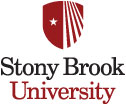Newswise — STONY BROOK, NY -- December 6, 2023 -- Stephen A. Koch, Stony Brook University professor emeritus in the Department of Chemistry, was recently named the recipient of the 2023 American Chemical Society (ACS) Award for Distinguished Service in the Advancement of Inorganic Chemistry “for pioneering contributions to bioinorganic chemistry and fundamental synthetic coordination chemistry, and for exceptional service to the ACS Division of Inorganic Chemistry.” The award is sponsored by Strem Chemicals.
Among his many responsibilities that garnered this accolade, Koch was responsible for the logistical task of scheduling the various Inorganic Chemistry Division oral and poster sessions at multiple National ACS meetings for more than a decade. Accordingly, he will be honored at the ACS award ceremony in March 2024, in conjunction with its annual conference, where he will provide an Award Address, and there will be a day-long symposium in his honor.
“It is humbling to receive an award previously won by my PhD and postdoctoral advisors, who were often suggested as candidates for the Nobel Prize,” Koch said. “I am also interpreting the award to honor my late wife, Michelle Millar, my scientific hero and one of the first women to be a chemistry professor at a research university. Her greatest satisfaction was the fact that she helped, with the other women of her generation, to break down the barriers that had limited the career opportunities for women chemists.”
Koch’s research efforts have centered on the synthesis and characterization of new types of transition metal compounds that exhibit interesting structural, spectroscopic, and reactivity properties. His most recent work involves the interactions of diatomic molecules, such as N2, CO, H2, CN1- and NO with Fe-sulfur centers in enzymes including nitrogenase, hydrogenase, and carbon monoxide dehydrogenase.
“I am absolutely thrilled for Steve for the recognition of his many key scientific achievements in bioinorganic chemistry and synthetic coordination chemistry,” said Stanislaus S. Wong, distinguished professor and chair of the Department of Chemistry. “Moreover, it is a most deserving and long overdue award for a faculty member who, along with his late wife, Michelle, enthusiastically devoted much of his time and effort to the scientific welfare and promotion of others. Furthermore, as undergraduate program director, Steve Koch was a tireless and relentless champion of undergraduate research and accomplishment. He has been and continues to be an inspiring role model to our Department in particular and to inorganic chemistry in general.”
In collaboration with the Welch Group at Washington University Medical School, Koch’s research team developed a new class of gallium and indium radiopharmaceuticals. Two of the molecules, namely [FeII(CN)5(CO)]3-and trans-[FeII(CN)4(CO)2]2- that his group studied, were recently found on a meteorite by a group at Boise State. Many think that the hundreds of organic compounds found on meteorites may be a key to understanding the creation of life. These two iron compounds would be the first transition metal compounds discovered with extraterrestrial origins. The implications of these compounds to prebiotic chemistry are open to speculation.
Koch hopes the same group will be able to test a sample of the asteroid Bennu recently brought to Earth by the NASA space probe OSIRIS-REx; he would be thrilled to send a correction to the journal Angewandte Chemie, where he reported on the synthesis and characterization of trans-[FeII(CN)4(CO)2]2-as a new compound that may actually be 4.5 billion years old.
“Steve has made important contributions in the fields of bioinorganic chemistry and coordination chemistry,” said Lawrence Que Jr., University of Minnesota, one of Koch’s colleagues. “For much of his academic career, he has also been a strong supporter of the ACS Division of Inorganic Chemistry, including organizing, or helping to organize, the division’s programming for 30 consecutive national meetings.”
Koch received his BS in chemistry from Fordham University and his PhD in inorganic chemistry from the Massachusetts Institute of Technology.
# # #
About Stony Brook University
Stony Brook University — New York’s flagship university and No. 1 public university — is going far beyond the expectations of today’s public universities. It is part of the State University of New York (SUNY) system. With nearly 26,000 students, more than 2,900 faculty members, more than 200,000 alumni, a premier academic healthcare system and 18 NCAA Division I athletic programs, Stony Brook is a research-intensive distinguished center of innovation dedicated to addressing the world’s biggest challenges. The university embraces its mission to provide comprehensive undergraduate, graduate and professional education of the highest quality, and is ranked as the #58 overall university and #26 among public universities in the nation by U.S. News & World Report’s Best Colleges listing. Fostering a commitment to academic research and intellectual endeavors, Stony Brook’s membership in the Association of American Universities (AAU) places it among the top 71 research institutions in North America. The university’s distinguished faculty have earned esteemed awards such as the Nobel Prize, Pulitzer Prize, Indianapolis Prize for animal conservation, Abel Prize and the Breakthrough Prize in Mathematics. Stony Brook has the responsibility of co-managing Brookhaven National Laboratory for the U.S. Department of Energy — one of only eight universities with a role in running a national laboratory. In 2023, Stony Brook was named the anchor institution for The New York Climate Exchange on Governors Island in New York City. Providing economic growth for neighboring communities and the wider geographic region, the university totals an impressive $7.23 billion in increased economic output on Long Island. Follow us on Facebook (https://www.facebook.com/stonybrooku/) and Twitter(@stonybrooku).
